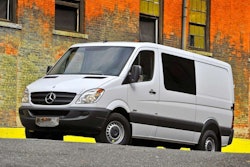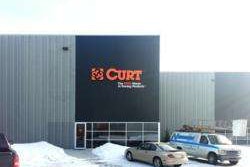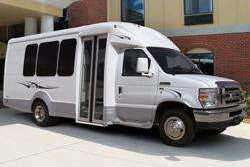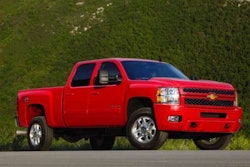“Made In The U.S.A.” Labeling Challenged
Teenage entrepreneur-led Bulldog Lighting leading the push for California legislators to pass proposed ‘Made in the USA labeling’ bill
A current law states that California businesses cannot claim their products are “Made in the USA” unless 100 percent of the components are manufactured in the country. The federal standard is 75 percent.
The disparity places an unfair disadvantage on California firms because there are some products that have components which are not available in the United States.
 Teenage entrepreneur Dylan Sievers is the brains behind Bulldog Lighting
Teenage entrepreneur Dylan Sievers is the brains behind Bulldog Lighting
Bulldog Lighting – a San Carlos, Calif.-based firm that was founded by teenage entrepreneur Dylan Sievers – is spearheading and promoting the passage of legislation that would make the 75 percent federal standard applicable in California.
Adopted by freshman Senator Jerry Hill, SB 661 will be discussed in the state senate on May 7. The passage of SB 661 would update California’s “Made in USA” labeling standard.
“California’s current ‘Made in USA’ labeling standard penalizes California business,” said the 19-year-old Sievers, who hatched the idea for Bulldog Lighting, which makes off road LED light bars for off-road vehicles, in a business class at Serra High School when he was a 17-year-old senior.
Bulldog Lighting in excess of $1 million in its first year of business. The company has three patents that are pending.
It has spent the last six months in research and development, and identifying supply sources from U.S. companies to produce its off road LED light bar for off-road vehicles.
Sievers is also initiating a push for creating a “Made in the USA” certification process.
“Creating a certification process for the ‘Made in the USA’ claim is critical because consumers deserve to know that companies making that statement actually exceed the 75 percent federal standard,” Sievers added.
“Some companies make this claim but actually have their products made outside of the country and just packaged or assembled in the United States.”
Sievers is astonished at the diminishing number of products that are currently manufactured in the United States, and this has spurred his activism.
“Consumers have a choice but we hope that they will support the U.S. made product that employs Americans,” he said. “I have hope and faith that California will lead the nation in putting business and consumers first.”









